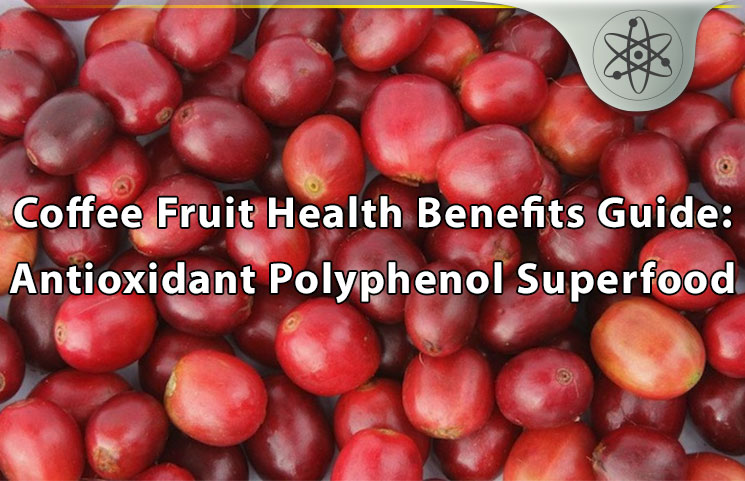Many people have very unhealthy cravings. A large handful of those people have what is called a “sweet tooth” – meaning that they get cravings for sweet snacks throughout the day. Cravings like this can lead to serious health problems such as weight gain and diabetes. Some other people get cravings for foods that are fine in moderation but unhealthy in excess, such as meat.
However, there is one very common craving (although I do not know if it is as much of a craving as it is a necessity for many people to get through their day) that used to be perceived as unhealthy, but is actually healthy. And that craving is for coffee. Generally, people only drink coffee so that they can experience a jolt of energy to begin their day. And that is all fine and good, but there are other beneficial reasons to drink coffee as well. One of those reasons is that it actually decreases your chances of dying from a variety of common causes of death. This conclusion was reached in a trial conducted in ten nations in Europe. All ten nations came to the same correlation between coffee consumption and reduced chance of death.
The benefits do not end there. In fact, that is only the tip of the iceberg. Recent science is emerging that you do not even have to brew up a cup of coffee to experience health benefits. That is right, you do not have to stain your teeth. How? You go to the root, or rather the fruit. As most of you probably already know, coffee is made from coffee beans. But you might not know that the coffee bean comes from the coffee fruit – and this fruit is surprisingly edible and even more surprisingly beneficial to your health. Consuming coffee fruit has been shown to cause the following benefits:
- Staving off a handful of illnesses
- Improving your heart function and staving off heart disease
- Maintaining proper brain performance

The Causes Of Coffee Fruit’s Health Benefits
As is the case with any food that boosts your health, it has to do with what’s in it. Coffee fruit is what is known as a “superfood”. You may have heard of other superfoods such as kale. This label just means that the coffee fruit is jampacked with healthy substances such as polyphenols and antioxidants.
In addition to that, consuming coffee fruit gives your immune system a much needed boost to help stave off disease. On top of that, the antioxidants in coffee fruit help to protect your cells from damage caused by oxidation. That is why they are called antioxidants, after all. Antioxidants have also been shown to have cancer preventing properties.
What You Need to Know About the Actual Coffee Fruit
I guess I got carried away with describing all of these benefits without even describing what a coffee fruit is. It is pretty self-explanatory, though. The coffee beans that are ground up to make your delicious cup of coffee are actually taken out of a fruit and that fruit is a coffee fruit (I told you it was self-explanatory). These fruits grow on your typical fruit-bearing plant. They typically have a burgundy hue but some variations can be green or yellow.
As is the case with fruits such as bananas and oranges, you do not want to eat the skin of a coffee fruit. But just like those aforementioned fruits, once you peel off that skin, you get a delicious edible center. What does it taste like? Well, definitely not like a banana or orange. It is sweet like a banana and has a sticky pulp like an orange, but it actually has more of a melon-esque taste. You might be a bit skeptical but I can assure you that it is a very pleasing taste.
On top of its great taste, coffee fruit also contain a very high amount of flavonoids, which are responsible for a handful of the health benefits associated with consuming the fruit.
What You Need to Know About Flavonoids
Great question! Here is a little background on botany. Plants, much like every other living thing, have evolved many times throughout history to deal with common threats that would have otherwise wiped them out. One of the results of this evolution was the creation and utilization of chemicals known as phytochemicals. These chemicals are designed to shield the plants from natural predators, as well as germs and pathogens that would kill them.
It turns out that these phytochemicals commonly end up in the fruits that these plants bear. And even more amazingly, these phytochemicals actually provide a bunch of health benefits when consumed. Especially a certain kind of phytochemicals known as flavonoids.
In fact, it is these flavonoids that give plants (and vegetables) their variety of colors. Flavonoids are why there are different colored coffee fruit. Even more importantly though, flavonoids are the antioxidants that I was talking about earlier. On top of being antioxidants, these flavonoids have inflammation-reducing properties as well. This means that consuming coffee fruit can help speed up your body’s healing process. And as I mentioned earlier, flavonoids serve as immune system boosters as well.
That is not all, though. A study conducted by an American university discovered that a certain flavonoid in coffee fruit known as quercetin provides a wide range of health benefits on its own. These benefits range from strengthening your heart health to helping to mitigate your allergies.
One of the main reasons behind flavonoids boosting your heart health is because they cause your body to create more nitric oxide.
What You Need to Know About Nitric Oxide
Let me introduce you to nitric oxide – a natural gas created inside the body. Why is it important? Well, it serves as a communication device that all the cells in your body use. Consider it to be like a walkie-talkie that all of your cells use to coordinate their actions.
In more medical and scientific terms, nitric oxide is considered a vasodilator. What exactly does that mean? In simple terms, it means that it widens the blood vessels in your body. This is beneficial because it gives more room for blood to flow throughout your body, thus lowering your blood pressure. And as everyone knows, your heart health generally decreases if you have high blood pressure. This is because your heart has to work even harder to pump blood and get it flowing through much more narrow vessels. And unfortunately, this is something that really can’t be avoided as it comes with aging.
However, nitric oxide can serve to mitigate that issue even as we age. Therefore, the harmful signs of aging such as a more unhealthy heart and higher risk of heart disease and even heart attack are less likely to happen. In summary, eating coffee fruit triggers your body to create more nitric oxide, which will help stave off the effects of aging.
But Wait, There’s More…
I briefly mentioned earlier that consuming coffee fruit can help maintain and even improve the functioning of your brain. This is mostly due to a certain compound whose release is triggered when coffee fruit is consumed known as brain-derived neurotrophic factor (BDNF). BDNF is responsible for improving the performance of your brain as well as enhancing your memory storing ability.
Once BDNF is released by a nerve cell, it embeds itself to another nerve cell and helps to enhance the performance of that cell. If enough nerve cells in your brain get this compound embedded to it, it is pretty simple to see how this would improve your brain’s performance.
Coffee Fruit Benefits In Conclusion
In this article, I have gone through all of the various benefits of consuming coffee fruit, including:
- Enhancing the health and performance of nerve cells, thus enhancing brain performance
- Strengthening your hearth health and reducing risk of heart disease
- Lowering blood pressure by widening blood vessels, allowing for healthier blood flow
If you are still not convinced that you should start eating coffee fruit ASAP, I am not sure what else to tell you. The only possible deterrence that I could think of is that it is not the easiest fruit for one to get their hands on. Luckily, people are starting to make supplements derived from coffee fruit and that will make these benefits much more accessible to those who are not coffee bean farmers.









